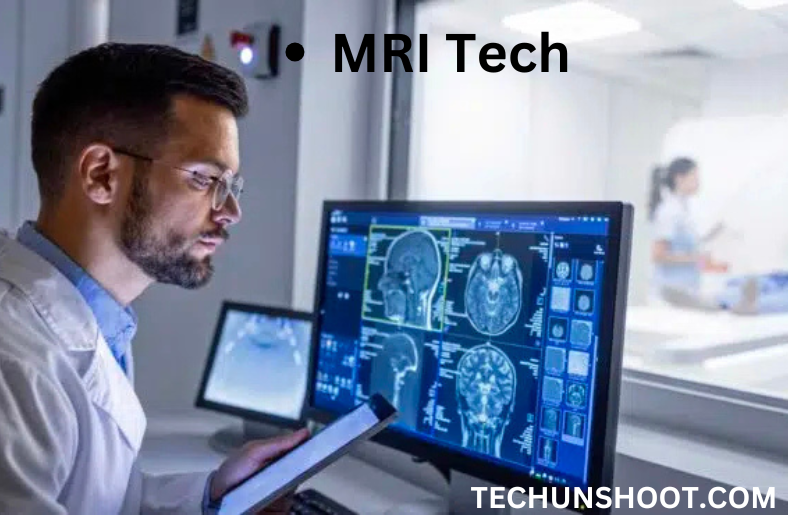
MRI Tech Careers : This is what you need to know to succeed
MRI (Magnetic Resonance Imaging) is believed to be one of the technologies important today in the medical field. The MRI technicians are important parameters of patient care and diagnosis. But if you are planning to become an MRI tech it is very essential to know that very specific job responsibilities and skills are needed to succeed in it. This article will help you understand key things about entering the MRI technology field.
What is an MRI Tech?
An MRI tech works the MRI machines to obtain detailed pictures of the patient’s biodata. These images can be used to diagnose and treat many conditions a patient may be suffering from. MRI techs have to make sure that patients are safe throughout the scanning process to achieve good image quality. The position calls for a person with technical expertise as well as understanding and passion for offering patient care.
With this understanding it is important to look at the educational requirements that MRI techs need to go through.
To become an MRI tech, formal education is required. Many MRI techs enter with a degree in radiologic technology or a related field of study. A two years associate degree is often required of anyone seeking to join the field. These programs include coursework and close clinic training. Some specialization requires certification in radiologic technology before one can perform MRI procedures.
MRI Tech Certification
Taking certification is essential to the progression of the MRI tech career. Licensure is not mandatory in the majority of the states while it is advisable for MRI techs. Two major certification tests for MRI techs are provided by the American Registry of Radiologic Technologists (ARRT). It is a specialty in MRI procedures and how to operate the machines. Achieving the certification results in higher employment opportunities as well as promotion chances in the line of the specialty.
Pre-Specialty Education and Professional Enhancement
On accomplishing the required training, MRI techs can seek further advancement of their careers. It is possible to find more options if you focus on the certain areas of MRI, for example, brain or joint imaging. Some of these areas of specialization can attract further training than that of the original course. MRI techs can have access to conferences that they can attend, or certification in the latest imaging developments.
Job and Organizational Requirements of Effective MRI Technologists
MRI techs require both technical skills and knowledge as well as problem solving and interpersonal skills. Let’s take a closer look at these essential qualities:
Technical Skills
MRI techs require the technical skills required to perform MRI proficiently. This involves knowledge in MRI software as well as the settings of the machine and when there is a troubleshooting issue. Another requirement is the possibility to set different parameters of the machines for various types of body. Moreover, MRI techs are required to observe various safety measures to ensure that equipment breaks down or patients suffer an adverse effect.
Attention to Detail
Patience and keen concentration are very vital for MRI techs. To be able to capture the best quality images there is a lot of effort and concentration that has to be put. Techs should ensure that patient positioning is correct to ensure that there are no wrong diagnoses. The right treatment plan for the patient is also achieved through proper interpretation of the display image.
Communication and Compassion
Since MRI techs are involved with the patients, communication skills are vital Skills and Qualifications required for MRI Techs. Due to these, patients are likely to have a lot of anxiety about the scanned area thus MRI techs should ensure that the patient understands what is expected of him/her. Courtesy enhances the patient’s satisfaction and ensures scans go on well. Good communication also refers to interaction with doctors and other healthcare professionals that need to be treated.
MRI Techs Job Openings
MRI techs are experiencing a growing demand due to innovations in medical imaging technologies. Opportunities for MRI techs are available across a variety of healthcare settings, including hospitals, outpatient clinics, and diagnostic imaging centers. As the field continues to evolve, more specialized roles are emerging, offering exciting career prospects.
Hospitals and Medical Centers : The largest number of MRI techs work for organizations where imaging is done for multiple specialties.
Outpatient Clinics : First, the diagnostic imaging clinics are relatively small in size, and second, they are capable of providing flexibility in hours.
Radiology Departments : There are some radiology departments, where independent MRI techs are needed for diagnostic procedures.
Research Institutions : MRI techs are also employed in research centers that are investigating new approaches to imaging as well as disease.
Salaries that New MRI Technologists Expect to be Paid
MRI technologists can make decent wages, the wage will be dependent on the area, experience, and certification. Based on the latest statistics, MRI techs in America earn $75,000 on average year by year. However, experienced MRI technicians not including those with specialization can earn a much bigger amount of money. It shall also depend on the setting whereby hospitals pay more than the outpatient centers do.
Professional Progression in MRI Technology
MRI techs can hope for promotion, gain extra certification or set up practice in a certain field. MRI techs with many years experience may find a new challenge in becoming supervisors or managers. Also, the MRI techs often switch to other fields within radiology, including the CT or X-ray. A few may do so simply to teach the next generation of MRI techs if they land teaching positions as well.
Trends That Make MRI Tech Careers a Challenge
Despite MRI tech careers can be fulfilling there are some hurdles to go through. MRI techs are faced with a lot of pressure and are required to deal with patients of different illnesses. The work can be tiring, this emanates from when fixing patients or moving about equipment and other movables. Furthermore, techs are further required to keep abreast with the existing technology since MRI and techniques change from time to time.
Conclusion
There is a lot to gain if one decides to become an MRI tech. This rising field depends more on education and certification as well as skills mastery for one to excel. MRI techs have significant contributions in patient care since they make detailed images required in managing patients. For individuals willing and capable of going through the required training, the MRI tech profession is both, personally and professionally, enriching as well as financially satisfying.



